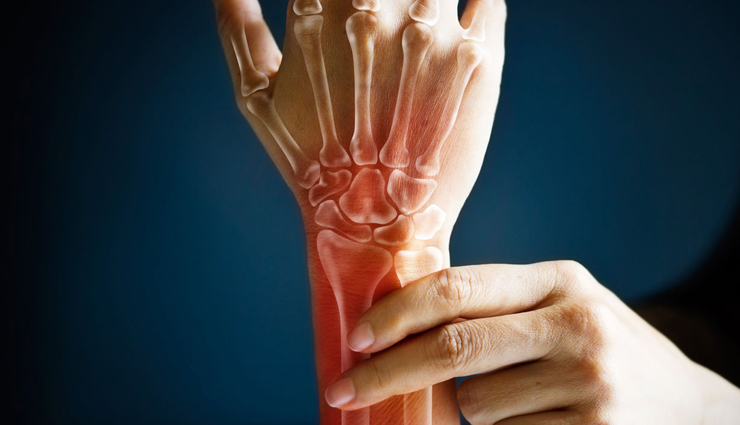- Home›
- Healthy Living›
- 6 Health Benefits Of Consuming Blue Cheese
6 Health Benefits Of Consuming Blue Cheese
By: Kratika Maheshwari Thu, 06 Oct 2022 11:42:36

Blue cheese with its distinctive flavor and pungent aroma isn’t for everyone. But once you start to savor the flavor, it can be hard to resist. And while blue cheese is an indulgence in terms of calories and fat, it may actually have some health benefits that make it worth eating. Here’s a look at something to quell your conscience the next time that craving strikes!

# Has Many Nutrients And A Distinct Flavor
Blue cheeses abound in the cheese-eating world – the English have their blue Stilton, the French their Roquefort, the Italian Gorgonzola, and the Danish their blue cheese. Whether it is made from cow’s milk or goat’s milk, blue cheese is a bit of an acquired taste. These cheeses get their characteristic mottled blue-veined appearance from the streaks of mold, formed from Penicillium cultures that are infused into the cheese or the curds.
The cheeses may be infused with Penicillium glaucum or Penicillium roqueforti as well as lactic acid bacteria. This process of production means that ripened molded cheeses are rich in a variety of fungal, bacterial, and mammalian substances that aren’t found in other cheese.1 While Danish blue and Gorgonzola are milder and a good place to start for the blue cheese novice, Stilton slightly raises the pungency stakes and Roquefort is for the connoisseur who truly loves blue cheese or strong flavors.

# Boosts Bone Health
Calcium is a vital nutrient for your bones, a building block for the tissue in your bones. When you are younger and have a growing body, you need the calcium to build strong bones. As you grow older, your body’s ability to utilize the calcium from diet reduces, requiring you to have more of it to maintain healthy bones. Inadequate calcium intake causes the body to break down calcium stores from the bone for other uses in the body like nerve and muscle function maintenance. Consuming adequate levels of calcium along with vitamin D, another nutrient found in cheese, may prevent or lower risk of osteoporosis.

# Is Good For Dental Health
Thanks to its calcium content, blue cheese can also help dental health. The American Dental Association actually recommends consuming dairy products like cheese to get protein and calcium since they are low in sugar – good news for anyone trying to avoid tooth decay – while also helping strengthen your teeth. Blue cheese, like all cheeses, also helps generate saliva which counters the effects of the enzymes and acids that can attack your teeth and lead to tooth decay, gum disease, and cavities. The calcium and phosphate also help restore mineral content to teeth in which these minerals are eroded by bacterial acids.

# Helps Build Muscle
You need protein to build and preserve muscle as well as body tissue. Blue cheese is a delicious way to get your protein, with 6 gm per ounce. It especially adds to your intake if you are trying to build muscle. It makes a quick nutritious snack especially if you pair it with some heart-healthy nuts and fresh fruit.

# Immune System Health
Blue cheese contains lactobacillus bacteria that is a probiotic and can help boost immune function. Probiotics increase the good bacteria in your intestine or gut, which helps act as effective protection against infection-causing microbes. May Be Anti-Inflammatory
The process of ripening cheese results in the formation of substances that cut inflammation in the body. This is done by reducing pro-inflammatory markers and cell signaling mechanisms responsible for inflammatory conditions. This effect may play a role in what’s dubbed the French paradox – that the French eat a diet high in saturated fat and yet record a low level of cardiovascular disease. Molded cheeses or blue cheese, in particular, may have a major contribution in this.

# Improves Gut Health And Eases IBS
Lactobacillus bacteria in blue cheese also has benefits for those with irritable bowel syndrome (IBS). The probiotic effect of lactobacillus may help to not just reduce but also alleviate symptoms associated with IBS like gas, abdominal pain, bloating, and difficulty passing stool.





